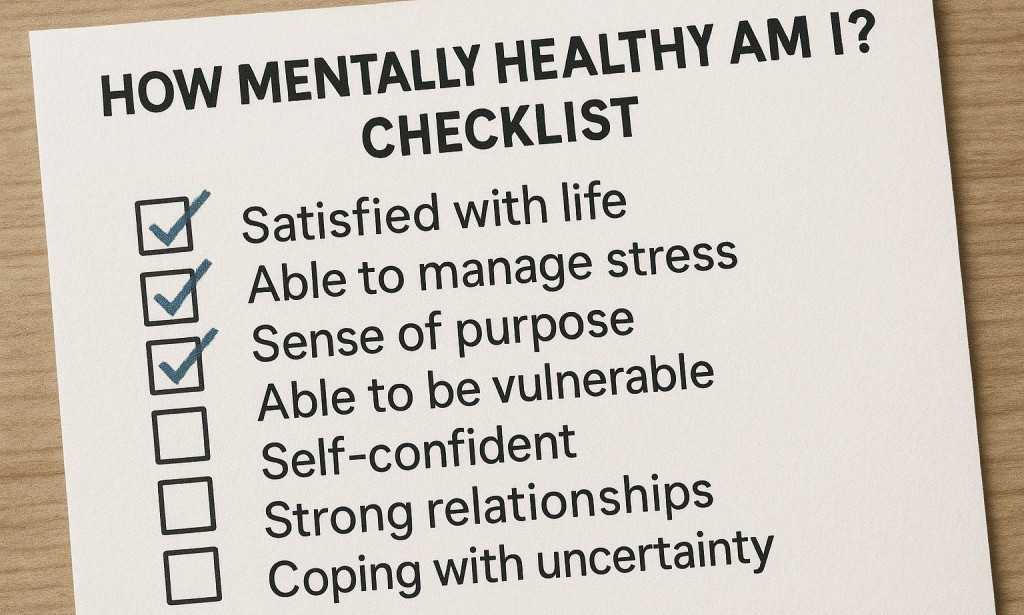Mental health checklist😳
Check how many items apply to you and write the number in the comments😌
1. Personal interest
People who care about their health do not allow others to hurt them and do not offer help unnecessarily, even if it may be to their own detriment.
They put their own interests and well-being first because they understand that if they do not take care of themselves, no one else will.
2. Social interest
Such individuals are sociable and strive to maintain harmonious relationships within their social environment. They are particularly close to some members of their group.
They rely on their emotions and feelings. They try to be sensitive and fair to those around them. They strive not to harm others. They seek cooperation and enjoy communication.
3. Independence
People of this type take responsibility for their lives and solve their own problems.
They often seek recognition from those around them, but it is not vital to them.
Their success and well-being do not depend on whether they are approved of or not.
4. Tolerance
They allow others to make mistakes.
If they dislike someone's behaviour, they do not blame the person as an individual, but allow them to follow their own path, because we are all prone to making mistakes.
A person who makes mistakes is not lost.
5. Acceptance of uncertainty and ambiguity
In our unpredictable and uncertain world, it is unlikely that there will ever be an era of complete certainty and absolute necessity, and such people understand this well.
They are also able to accept uncertainty and are ready for adventure. They know how to learn and respond to the challenges that life throws at them.
6. Flexibility
These people are receptive to change and able to perceive the diversity of personalities, ideas, and objects in the world around them with an open mind.
They can passionately defend their views and emotions, but at the same time calmly accept new things.
Their ideas about ‘reality’ can change depending on new information.
7. Scientific thinking
These people are objective, rational, and scientific in their thinking.
They make assumptions and then test them.
They apply logic and scientific approaches in their lives and in their interactions with others.
They are open to change.
8. Enthusiasm
People often immerse themselves in their passions, whether it be work, hobbies, or thoughts.
These activities become meaningful to them, but are not connected to other aspects of their lives.
It is around these passions that they build a significant part of their lives.
9. Risk-taking
They engage in internal dialogue and are aware of their actual life goals, striving to achieve them despite potential setbacks.
They are ready for adventure, are not afraid to take risks, and welcome new opportunities.
10. Self-acceptance
Such people are happy to be alive and believe that they ‘deserve’ life and joy. They have an unquestionably positive self-image. They possess the ‘courage to be.’
They strive to act meaningfully and competently, seeking recognition not for the sake of their ego, but for their own satisfaction. They evaluate their actions, deeds, and qualities in accordance with their goals and values.
11. Concern for the future
They do not do things that bring joy today, but may turn into trouble tomorrow.
Their goal is happiness, not pain.
12. Lack of perfectionism and commitment to utopias
The realisation that no one can achieve absolute perfection, even in areas where it seems possible, means that people do not feel obliged to strive for the ideal.
A person can come close to the ideal, but it is a difficult path that will bring disappointment more than once.
13. Responsibility for one's own emotional disturbances
They realise that they are responsible for their negative thoughts and emotions, as well as for their actions. They do not look for someone else to blame for their trauma, among other people or external circumstances.
They accept themselves as they are, regardless of how they behave or how others perceive them. When something does not work out, they analyse and evaluate their behaviour, but do not believe that they must always do everything perfectly and receive approval. They do not think that they are good when everything works out and bad when something goes wrong.
Read my articles
https://stattya.com/how-to-stop-suffering-acceptance-instead-of-resistance-154
https://stattya.com/how-to-survive-the-crisis-755
https://stattya.com/love-addiction-normal-or-abnormal-the-psychology-behind-falling-in-love-171


You must be logged in to post a comment.